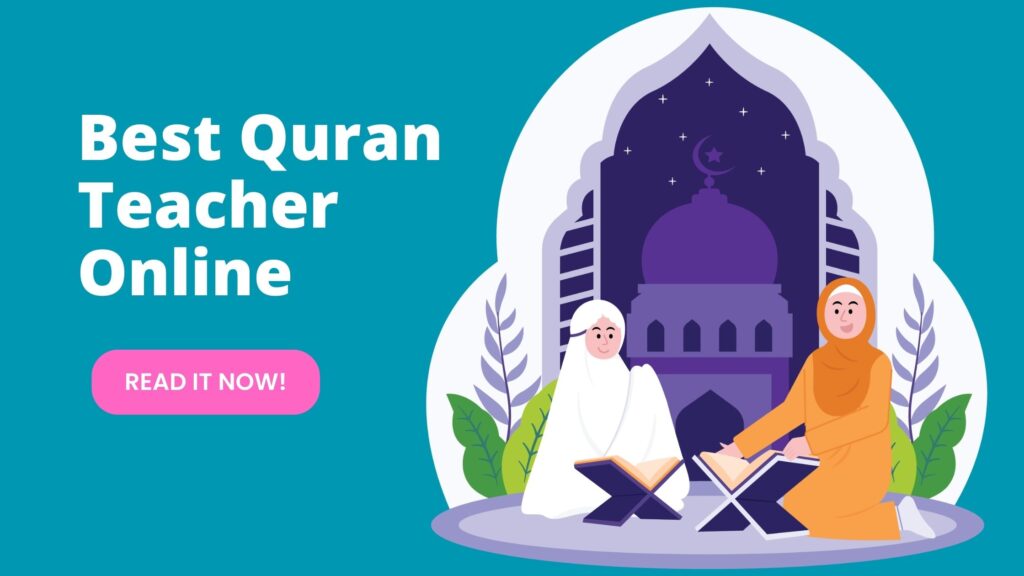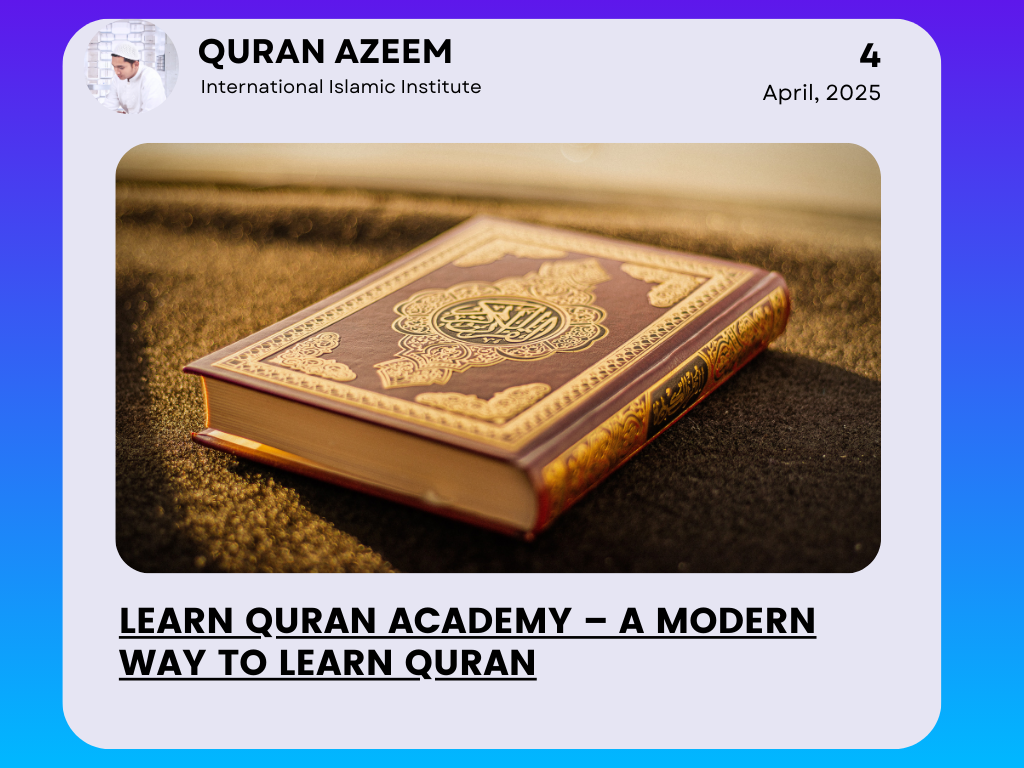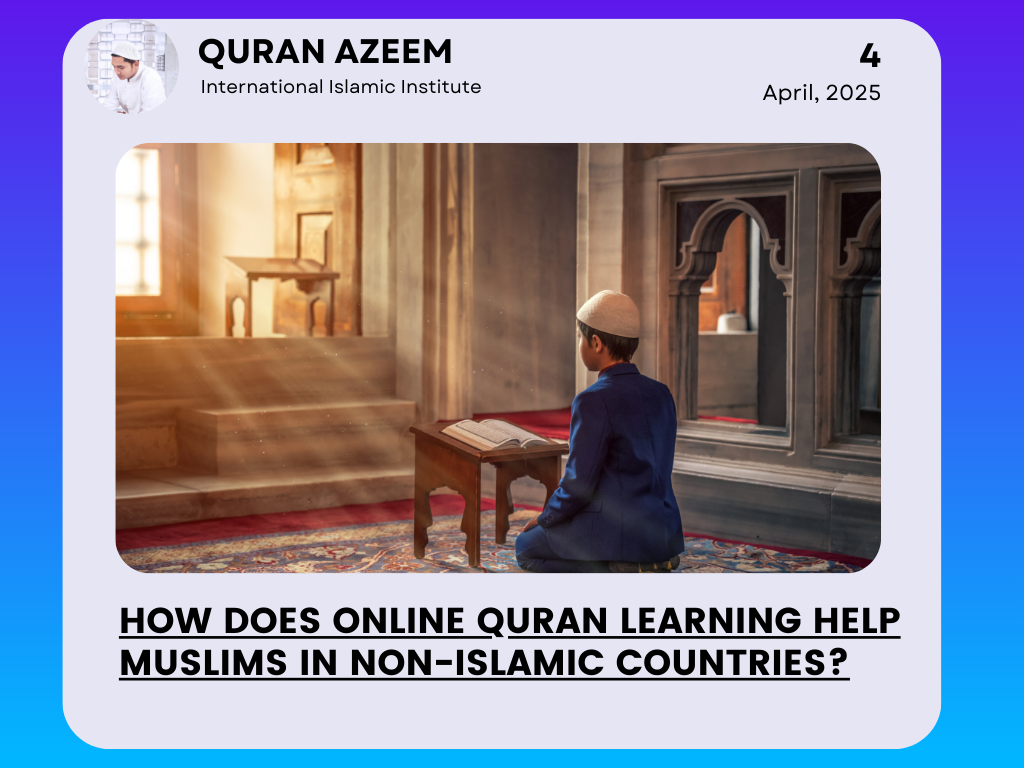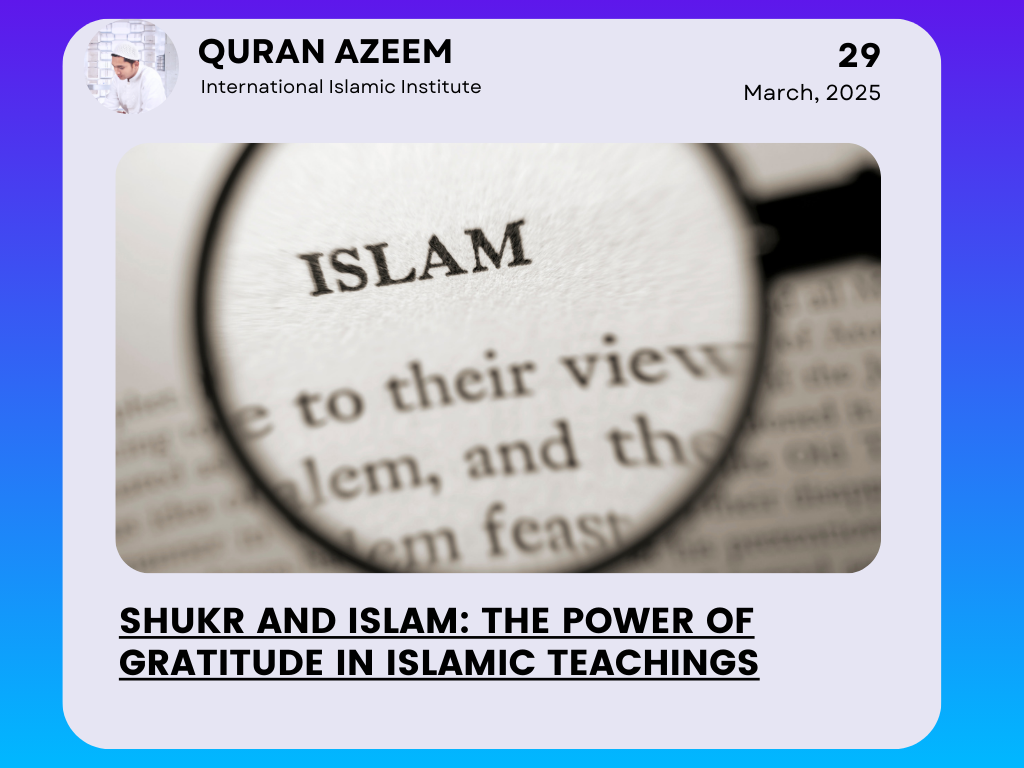Muslims living in non-Islamic countries often face challenges in learning and practicing their faith due to a lack of Islamic institutions and qualified teachers. Online Quran learning has become an effective solution, providing access to qualified teachers, structured courses, and flexible learning schedules. In this blog, we will explore how online Quran learning benefits Muslims living in non-Islamic countries and why it has become an essential tool for religious education. 1. Easy Access to Qualified Quran Teachers 1.1 Lack of Islamic Centers in Non-Islamic Countries Many Muslims live in countries where mosques and madrasas are limited or far from their homes. Finding a qualified Quran teacher can be difficult, making it hard for children and adults to learn properly. 1.2 Online Platforms Connect Students with Expert Teachers With online Quran learning, students can connect with certified Quran tutors from different parts of the world. These teachers have expertise in Tajweed, Tafseer, and Islamic studies, ensuring high-quality education. 🔹 Example: A Muslim family in the USA can hire an expert Quran teacher from Egypt, Pakistan, or Saudi Arabia without traveling anywhere. 2. Flexible Learning Schedules for Busy Families 2.1 Learn at Your Own Pace Many Muslims in Western countries have busy work and school schedules. Online Quran classes allow them to choose their preferred timings and study at their own pace. 2.2 Suitable for Different Time Zones Online Quran academies offer 24/7 availability, allowing students to schedule classes according to their time zone, whether they live in the USA, Canada, the UK, or Australia. 🔹 Example: A working parent in Canada can arrange Quran classes for their child in the evening after school or work hours. 3. One-on-One Personalized Learning Experience 3.1 Focused Attention for Students Unlike traditional madrasas, where one teacher handles multiple students, online Quran classes provide one-on-one learning, allowing teachers to focus entirely on the student’s progress. 3.2 Customized Learning Plans Students can have customized lessons based on their age, learning speed, and level of understanding. 🔹 Example: A beginner can start with basic Noorani Qaida, while an advanced student can study Tafseer (Quranic interpretation). 4. Safe and Comfortable Learning Environment 4.1 Learning from Home Online Quran learning allows students to study from the comfort of their homes without the need to travel long distances. 4.2 Parents Can Monitor Their Children’s Classes Parents can supervise the classes and ensure their children are learning in a safe and secure environment. 🔹 Example: A mother in Germany can sit beside her child during an online Quran class to track progress and interact with the teacher. 5. Availability of Tajweed and Hifz Programs 5.1 Learn Proper Tajweed from Experts Tajweed is essential for correct Quran recitation. Online Quran academies offer Tajweed courses, helping students improve their pronunciation and recitation. 5.2 Memorization (Hifz) Programs Many online platforms provide Hifz courses, where students can memorize the entire Quran with the guidance of expert Hafiz tutors. 🔹 Example: A teenager in France can join an online Hifz program and complete Quran memorization while attending regular school. 6. Learning the Quran with Translation and Tafseer 6.1 Understanding the Meaning of the Quran Non-Arabic speakers often struggle to understand the meaning of the Quran. Online Quran classes offer translation and Tafseer (explanation) courses to help students grasp the true message of the Quran. 6.2 Multi-Language Learning Many online Quran academies provide lessons in English, Urdu, French, Spanish, and other languages, making learning easier for non-Arabic speakers. 🔹 Example: A student in the UK can take Quran classes in English or Urdu to understand the meaning of the verses. 7. Affordable and Cost-Effective Learning 7.1 No Transportation Costs Since classes are conducted online, students do not need to spend money on transportation or relocating to another city for Islamic education. 7.2 Different Packages for Different Budgets Online Quran academies offer various pricing plans, making Quran education affordable for everyone. 🔹 Example: A family in Australia can select a budget-friendly package that meets their learning needs. 8. Connecting with a Global Muslim Community 8.1 Online Group Classes and Discussions Many online Quran academies offer group learning sessions where students from different countries can interact, share experiences, and motivate each other. 8.2 Learning Islamic Values in a Non-Islamic Environment Living in a non-Muslim country can sometimes weaken a person’s Islamic identity. Online Quran learning helps students stay connected with their faith and learn Islamic manners, morals, and values. 🔹 Example: A Muslim child in the USA can join an online Islamic studies class to learn about Sunnah, Hadith, and Islamic history. 9. Easy Learning Tools and Digital Resources 9.1 Interactive Quran Apps and E-Books Many online Quran academies provide interactive apps, digital books, and video lessons, making learning more engaging and effective. 9.2 Recorded Classes for Future Reference Some platforms allow students to record their classes, so they can review lessons anytime. 🔹 Example: A busy professional in the UK can watch a recorded Tafseer class whenever they have free time. Conclusion: Online Quran Learning – A Blessing for Muslims in Non-Islamic Countries Online Quran learning has transformed the way Muslims in non-Islamic countries access and learn the Quran. With qualified teachers, flexible schedules, personalized learning, and digital resources, students can overcome the challenges of learning the Quran while living in Western countries. Why Choose Online Quran Learning? ✅ Access to certified Quran teachers from anywhere in the world✅ Flexible class timings suitable for students in different time zones✅ Safe learning environment with parental supervision✅ Tajweed, Hifz, and Tafseer courses available for all levels✅ Cost-effective and affordable packages for families✅ Strong connection with Islamic values even in a non-Islamic society If you or your children are struggling to learn the Quran due to a lack of resources, consider enrolling in an online Quran academy today! 📖 Join Quran Azeem’s Online Quran Learning Program and experience high-quality Islamic education from expert tutors. 🌍 No matter where you live, the Quran is now just a click away!








